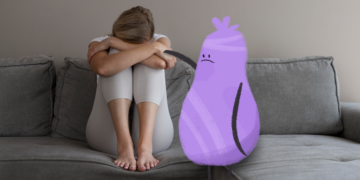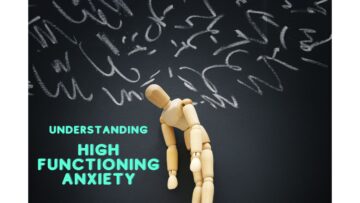
Sleep is a big deal.
I wouldn’t wish the kind of insomnia I had on anybody.
My name is Olivia. I’m a 30-year-old graphic designer. And I was so. Damn. Stressed.
As far back as I can remember, at least in my adult life, I’ve suffered from stress and generalized anxiety.
There was never a moment for me that triggered this – maybe I was just born with it.
Being a worrier and overthinker came naturally to me, and at times I even prided myself in my ability to dig deep and find the most minor problems. I thought it helped me in my career – being so attentive to details.
I was wrong, of course, but I learned that much later.
The beginning of the end
It started on a typical, boring Wednesday.
I went into the office like I always do, had my morning coffee, chatted with my colleagues, and got to work.
But that didn’t happen, the work part, I mean.
I just sat there.
Staring at the screen, trying to make things make sense in my head. But… they didn’t.
Suddenly it felt as though everything I knew had been scooped out of my brain and thrown in the trash.
I felt like I was having a panic attack.
I wasn’t, it turns out; I was just scared.
I got up and went to the kitchen for some cold water, maybe I was just really dehydrated.
Then I caught a glimpse of myself in the reflective metal of the microwave.
I looked drained.
Not drained like “Oh there goes Olivia, she’s been working hard, bless her” – drained like “Oh there goes Olivia, we should probably call her an ambulance.”
I immediately went to my manager and explained how I felt, and luckily for me, she was completely understanding and said I should go to the doctor to figure out what was going on.
The first sign of trouble
I called my GP and headed over as soon as an appointment was available.
After the first look at me, he asked, “Have you been sleeping much?” – I answered that, yes, the same as always, not a huge amount, just a solid 4–5 hours per night.
He raised his eyebrow.
4–5 hours per night was indeed the norm for me, but apparently, this wasn’t enough. Clearly, I mean, I looked like a ghost.
He quickly understood that physically there were no underlying health issues.
However, he did refer me and strongly urged me to visit a psychiatrist.
So, I did.
After the first meeting and many discussions, I was diagnosed with generalized stress and anxiety with insomnia.
But there was a catch – I was prescribed medication to combat this.
Don’t get me wrong, I’m not an anti-vaxxer terrified of science, but I prefer to treat things as naturally as possible.
So, you can probably tell that the idea of medication didn’t sit particularly well with me.
I gave it a shot, though. It was a recommendation from a medical professional, so who was I to question it? And if it meant I’d go back to feeling relaxed, sleeping well, and not looking like a ghost, I was all for it.
A temporary fix
The medication did help me.
But only to a certain extent, and unfortunately, I suffered some unpleasant side effects.
My mouth was always dry, I’d feel light-headed and a little nauseous in the mornings.
I was sleeping more, but I felt no more rested.
So I started seeking an alternative to the medication that would allow me to continue feeling better without the adverse effects.
That’s when I discovered the plethora of mental health improvement apps available.
It was a bit overwhelming, to be honest.
I stumbled across an online forum where people discussed such things and saw a recommendation for an app called Sensa.
The forum user seemed to have very good things to say about it, so I figured I’d check it out.
I went onto the website and completed the quiz, and the results lined up exactly with how I felt.
Drained, tired, stressed, anxious.
I am she, she is me.
So I bought the plan since it was really well-priced, even cheaper than my monthly prescription for meds – let alone the cost of the therapist visits.
The light at the end of the tunnel
Within a matter of weeks, I’d stopped taking the medication, and my condition was improving to no end.
I felt energized, ambitious, and well-rested.
Even my psychiatrist quizzed me on my progress and was shocked to hear that I’d stopped taking the medication – considering how much better I was feeling.
My advice to you is simple.
If you have ever felt, or currently feel, the way I did – there is a way out.
It’s not expensive, it’s not time-consuming, and it’s nothing to be ashamed of.
Your mental well-being is everything – don’t let yourself reach the bottom before starting to climb out.
Try Sensa by taking the quiz below – you won’t regret it!





